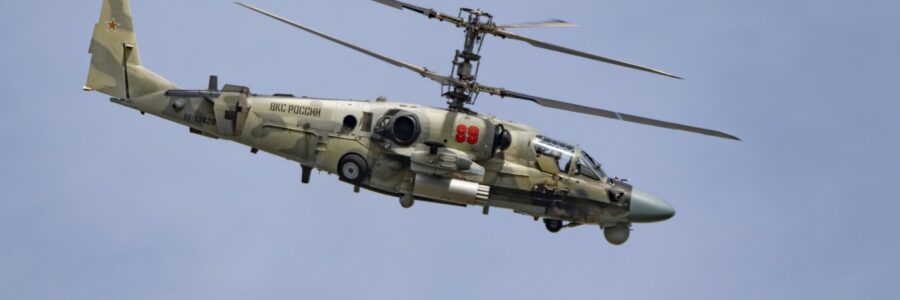
Wednesday’s Top 5 Stories From Putin’s War in Ukraine
Are Russian ground forces really withdrawing from positions near Kyiv? Ukraine President Volodymyr Zelensky is skeptical.
A Russian defense ministry official said on Tuesday that the country (i.e., Vladimir Putin) will “dramatically” reduce the size of its forces and activities around Ukraine’s capital city. The announcement came after the day’s negotiations between Russian and Ukrainian officials in Turkey.
In remarks late Tuesday night, Zelensky said:
You saw the news today that the Russian military command allegedly decided to ‘reduce hostilities in the directions of Kyiv and Chernihiv.’ We should not lose vigilance. The situation has not become easier. The scale of the challenges has not diminished. The Russian army still has significant potential to continue attacks against our state.
The Institute for the Study of War (ISW) is also wary of Russian claims. In its Tuesday assessment, the ISW begins with, “The Russians have not yet abandoned their attacks on Kyiv, claims by Russian Defense Ministry officials notwithstanding.” The ISW’s report continues:
The Russian high command has likely concluded that it cannot seize Kyiv and may not be able to move artillery closer to the center of the city. It may have decided to stop its previous practices of forcing units that have already taken devastating losses to continue hopeless offensive operations and of feeding individual battalion tactical groups into the battle as they become available rather than concentrating them to achieve decisive effects. Russian officials are likely casting these decisions driven by military realities as overtures demonstrating Russia’s willingness to engage in serious ceasefire or peace negotiations, possibly to conceal the fact that they have accepted the failure of their efforts on the Kyiv axis.
The Ukrainians have “out thought the Russian President, his advisors and the Russian military institution,” according to retired Major General (Australian) Mick Ryan. The Ukrainians also have been “superior strategists” Ryan tweeted on Tuesday.
After reviewing the four main elements of Ukraine’s strategy, Ryan asks the central question, “Can Ukraine win?” He concludes that it can, “[b]ut it will require massive amounts of military, diplomatic, economic, and humanitarian aid to continue to fight & ensure it is best placed to get what it needs from peace negotiations.”
Russia has launched hypersonic missiles into Ukraine, according to U.S. Air Force General Tod Wolters. Russia claimed on March 19 that it had used one of its hypersonic Kinzhal missiles to strike an ammunition dump in Ukraine, but the report was only just confirmed by Wolters.
In his remarks, Wolters, who is the top U.S. commander in Europe, also noted that “Russia has committed at least 70 percent of its total military capability to its unprovoked war on Ukraine, yet failed to topple the government or crush the outnumbered Ukrainian resistance.”
Russia placed its first hypersonic weapon into service in late 2019. The term “hypersonic” describes a missile capable of traveling at a speed exceeding Mach 5, or about 3,800 mph.
Get Our Free Investment Newsletter
Latest Defence Intelligence update on the situation in Ukraine – 30 March 2022
Find out more about the UK government's response: https://t.co/ete9x5Ty71
🇺🇦 #StandWithUkraine 🇺🇦 pic.twitter.com/202UH5Uz8t
— Ministry of Defence 🇬🇧 (@DefenceHQ) March 30, 2022
Sponsored: Find a Qualified Financial Advisor:
Finding a qualified financial advisor doesn’t have to be hard. SmartAsset’s free tool matches you with up to 3 fiduciary financial advisors in your area in 5 minutes. Each advisor has been vetted by SmartAsset and is held to a fiduciary standard to act in your best interests. If you’re ready to be matched with local advisors that can help you achieve your financial goals, get started now.
Source: Read Full Article